Scholz's coalition dealt blow in German state elections as far right make gains
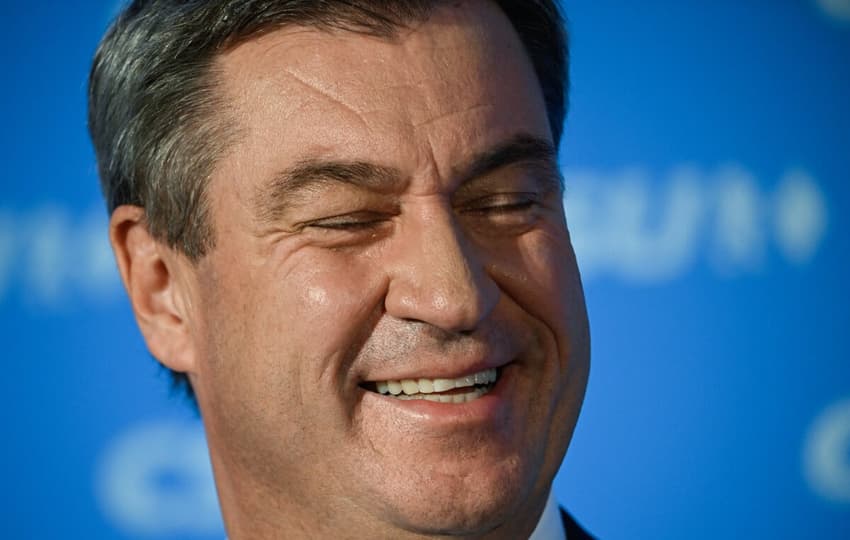
German Chancellor Olaf Scholz's troubled coalition suffered heavy losses in two state elections Sunday seen as a crucial test halfway through its term, while the resurgent far right made new gains.
All three parties in the coalition -- Scholz's centre-left SPD, the Greens and the liberal FDP -- lost ground in southern Bavaria, the country's biggest state, and western Hesse, according to vote projections.
The main conservative opposition won in both states, as expected, while the far-right Alternative for Germany (AfD) made strong gains, ringing alarm bells anew about its growing popularity.
Nearly 14 million people were eligible to vote in the states, almost one in five of Germany's electorate. The polls were seen as a crucial indicator of the population's mood, with surging immigration and economic woes among key topics.
The poor results triggered soul-searching in Scholz's coalition, with senior figures acknowledging a new approach was needed.
The elections were a "signal for the three (coalition) parties that a different pace is needed when it comes to solving the problems of the citizens in this country", SPD co-leader Lars Klingbeil told broadcaster ARD.
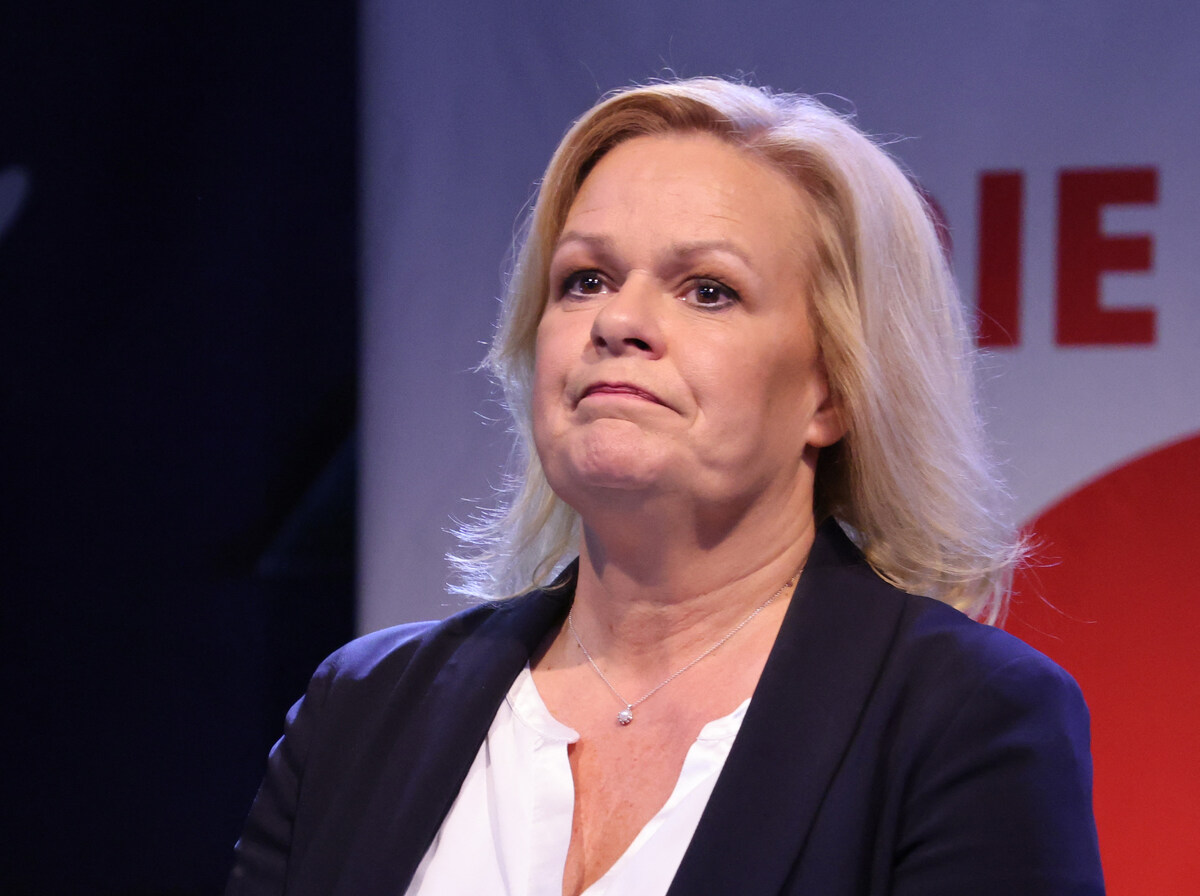
German Interior Minister and top candidate of the social democratic SPD party Nancy Faeser is applauded at the State Parliament of Hessen in Wiesbaden, western Germany, as first exit polls were released on October 8, 2023. (Photo by Daniel ROLAND / AFP)
In contrast, there was cause for celebration for the anti-immigration AfD.
Co-leader Alice Weidel declared the party was "on the right track", describing the polls as a "lesson for the (coalition) and a vote for change".
The elections came after a torrid two years for Scholz's government, which has had to contend with Russia's invasion of Ukraine and the ensuing energy crisis, which plunged Germany into recession.
Adding to the problems, the chancellor's coalition has been consumed by bitter infighting on issues ranging from climate laws to spending cuts.
Not helping the cause of the SPD and its coalition partners, both states are conservative strongholds. Hesse had been ruled for 24 years by the main opposition CDU and Bavaria since 1957 by the CSU, headed by Markus Söder.
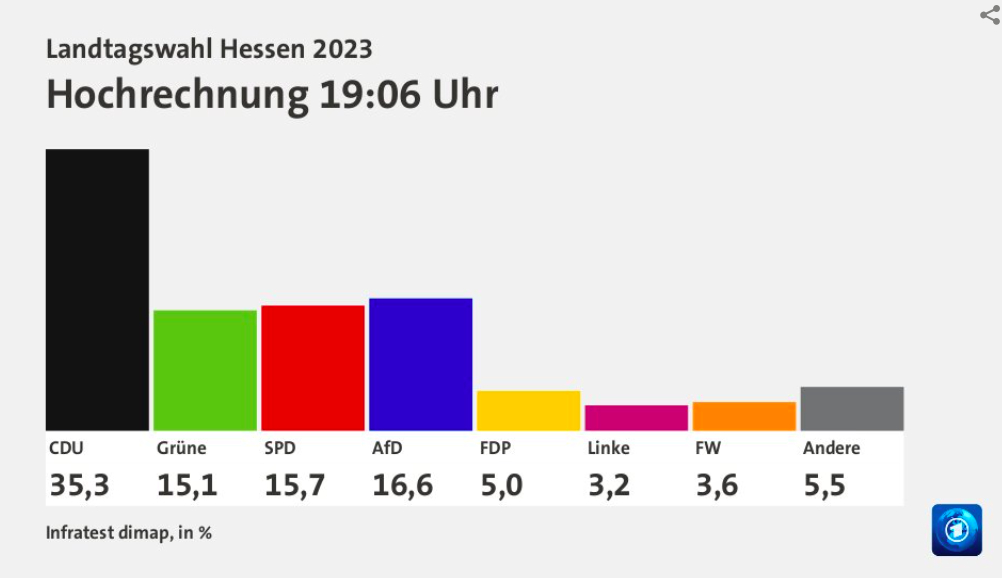
Latest far-right win
The SPD had sought to gain ground in Hesse by fielding a heavyweight to run for state premier, Interior Minister Nancy Faeser.
But the party won just 15 percent of the vote, almost five percentage points below its last result in 2018, according to the latest projections late Sunday from ARD.
The CDU maintained its first place in Hesse and extended its lead by over seven points to 34.5 percent, the projection showed.
State premier Boris Rhein is thus set to retain his job, while Faeser is left facing questions about her political future.
The AfD looked to have gained about five percentage points in both Bavaria and Hesse, building on recent local poll wins.
While it does not look likely to enter government in either state -- its strongholds are in eastern Germany -- analysts said it showed the party had broad appeal.
"There can no longer be any talk of (the AfD) being merely an east German regional party," said the daily Süddeutsche Zeitung.
The AfD is traditionally an anti-immigration party but has also focused on attacking the coalition's unpopular climate policies, driven by the Greens.
Critics argue they could unduly burden households.
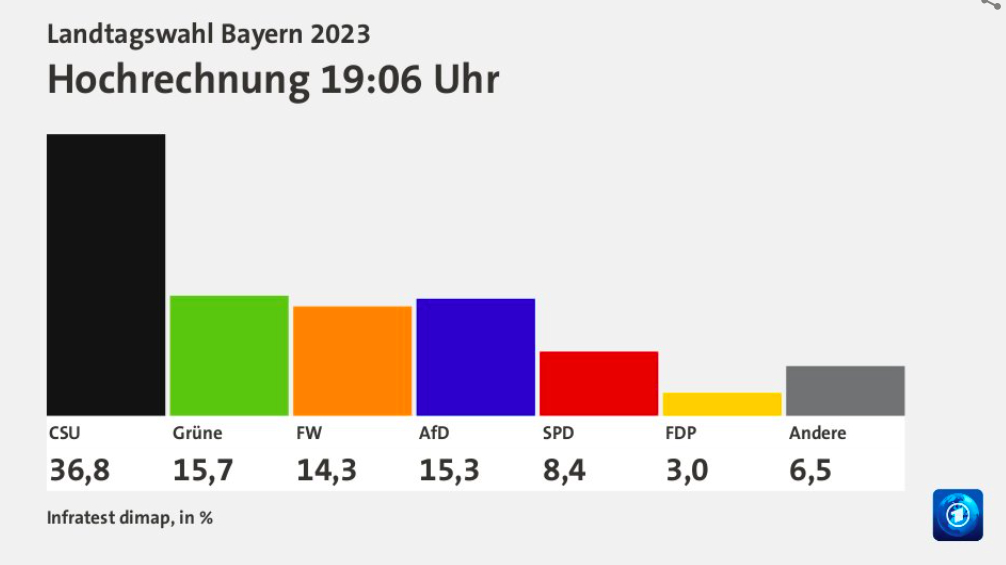
Immigration was also a central theme at the polls as Germany -- like elsewhere in Europe -- faces a surge of new arrivals, reviving memories of a major influx in 2015.
The victory of the CSU -- the sister party of the CDU -- in Bavaria was widely expected and state premier Soeder will retain his post.
But with vote projections showing the party's worst result for decades, it could deal a blow to his ambitions to one day stand as a chancellor candidate.
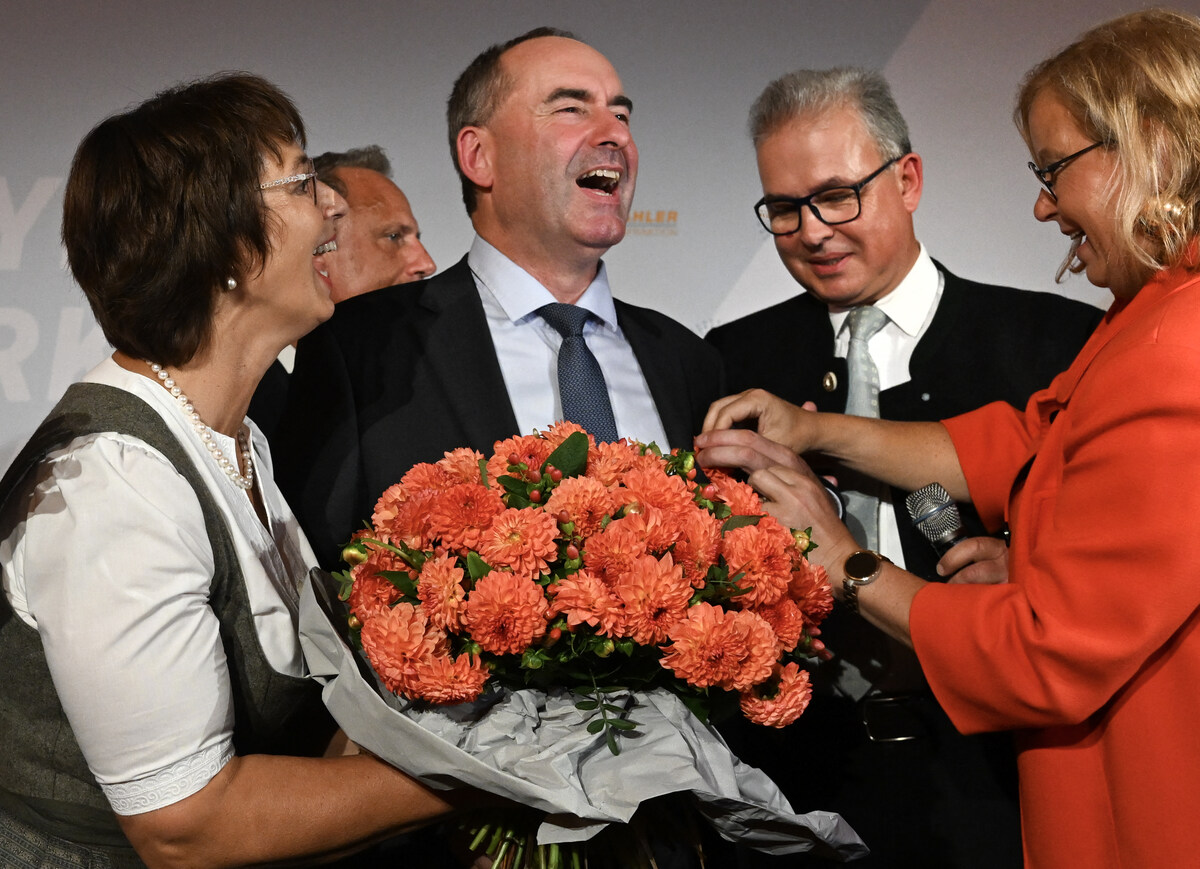
A party member attaches a flower to the jacket of top candidate of the Free Voters party Hubert Aiwanger (C) at the Bavarian State Parliament in Munich, as first exit polls were released on October 8, 2023. (Photo by CHRISTOF STACHE / AFP)
Ahead of the vote, the state's governing coalition was rocked by a scandal when Söder's deputy, Hubert Aiwanger, admitted to possessing Nazi pamphlets that were found in the schoolbag he used as a teenager in the late 1980s.
But Aiwanger, leader of junior coalition partner the Free Voters, managed to hang on to his job and his party increased its share of the vote after he claimed he was the victim of a "witch hunt".
In contrast, the parties from Scholz's coalition lost support in Bavaria and the FDP fell below the threshold to get into the state parliament.
Comments
See Also
All three parties in the coalition -- Scholz's centre-left SPD, the Greens and the liberal FDP -- lost ground in southern Bavaria, the country's biggest state, and western Hesse, according to vote projections.
The main conservative opposition won in both states, as expected, while the far-right Alternative for Germany (AfD) made strong gains, ringing alarm bells anew about its growing popularity.
Nearly 14 million people were eligible to vote in the states, almost one in five of Germany's electorate. The polls were seen as a crucial indicator of the population's mood, with surging immigration and economic woes among key topics.
The poor results triggered soul-searching in Scholz's coalition, with senior figures acknowledging a new approach was needed.
The elections were a "signal for the three (coalition) parties that a different pace is needed when it comes to solving the problems of the citizens in this country", SPD co-leader Lars Klingbeil told broadcaster ARD.

In contrast, there was cause for celebration for the anti-immigration AfD.
Co-leader Alice Weidel declared the party was "on the right track", describing the polls as a "lesson for the (coalition) and a vote for change".
The elections came after a torrid two years for Scholz's government, which has had to contend with Russia's invasion of Ukraine and the ensuing energy crisis, which plunged Germany into recession.
Adding to the problems, the chancellor's coalition has been consumed by bitter infighting on issues ranging from climate laws to spending cuts.
Not helping the cause of the SPD and its coalition partners, both states are conservative strongholds. Hesse had been ruled for 24 years by the main opposition CDU and Bavaria since 1957 by the CSU, headed by Markus Söder.

Latest far-right win
The SPD had sought to gain ground in Hesse by fielding a heavyweight to run for state premier, Interior Minister Nancy Faeser.
But the party won just 15 percent of the vote, almost five percentage points below its last result in 2018, according to the latest projections late Sunday from ARD.
The CDU maintained its first place in Hesse and extended its lead by over seven points to 34.5 percent, the projection showed.
State premier Boris Rhein is thus set to retain his job, while Faeser is left facing questions about her political future.
The AfD looked to have gained about five percentage points in both Bavaria and Hesse, building on recent local poll wins.
While it does not look likely to enter government in either state -- its strongholds are in eastern Germany -- analysts said it showed the party had broad appeal.
"There can no longer be any talk of (the AfD) being merely an east German regional party," said the daily Süddeutsche Zeitung.
The AfD is traditionally an anti-immigration party but has also focused on attacking the coalition's unpopular climate policies, driven by the Greens.
Critics argue they could unduly burden households.

Immigration was also a central theme at the polls as Germany -- like elsewhere in Europe -- faces a surge of new arrivals, reviving memories of a major influx in 2015.
The victory of the CSU -- the sister party of the CDU -- in Bavaria was widely expected and state premier Soeder will retain his post.
But with vote projections showing the party's worst result for decades, it could deal a blow to his ambitions to one day stand as a chancellor candidate.

Ahead of the vote, the state's governing coalition was rocked by a scandal when Söder's deputy, Hubert Aiwanger, admitted to possessing Nazi pamphlets that were found in the schoolbag he used as a teenager in the late 1980s.
But Aiwanger, leader of junior coalition partner the Free Voters, managed to hang on to his job and his party increased its share of the vote after he claimed he was the victim of a "witch hunt".
In contrast, the parties from Scholz's coalition lost support in Bavaria and the FDP fell below the threshold to get into the state parliament.
Join the conversation in our comments section below. Share your own views and experience and if you have a question or suggestion for our journalists then email us at [email protected].
Please keep comments civil, constructive and on topic – and make sure to read our terms of use before getting involved.
Please log in here to leave a comment.